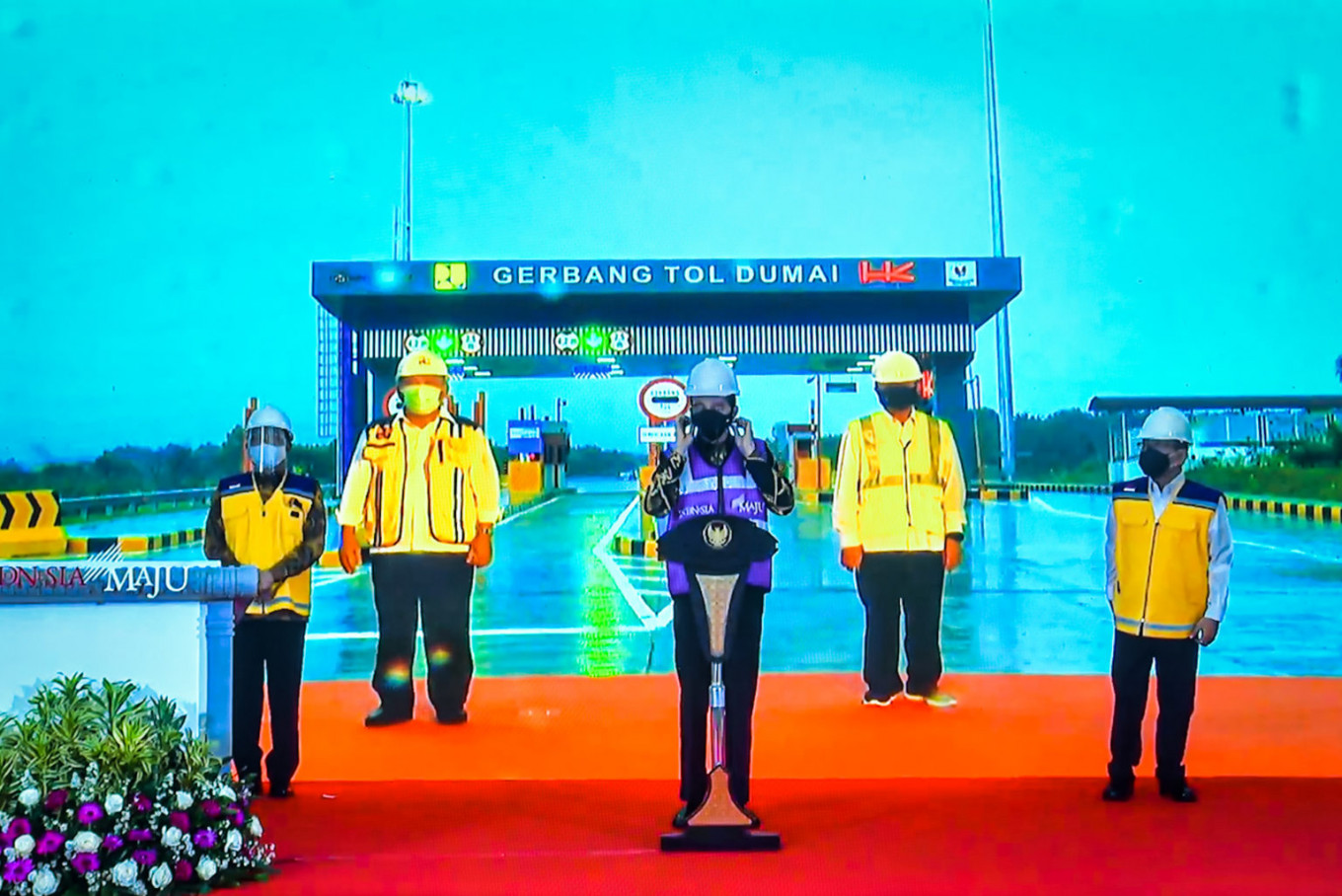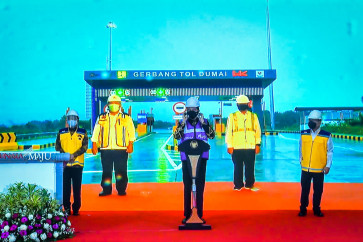Popular Reads
Top Results
Can't find what you're looking for?
View all search resultsPopular Reads
Top Results
Can't find what you're looking for?
View all search results[ANALYSIS] Omnibus law impacts construction sector
There are five points in the omnibus law that serve as a catalyst for the industry, especially for infrastructure development. T
Change text size
Gift Premium Articles
to Anyone
W
e expect the Job Creation Law to have a positive impact on construction. There are five points in the omnibus law that serve as a catalyst for the industry, especially for infrastructure development. They include accelerating the land acquisition process, establishing a land bank, establishing a sovereign wealth fund (SWF), facilitating national strategic projects and easing licensing and investment in the construction service sector.
Infrastructure development in Indonesia faces some challenges. According to data from the Committee for the Acceleration of Priority Infrastructure Delivery (KPPIP), the key challenges in national strategic projects are land acquisition (40 percent of total case projects), the construction process (23 percent), financing (18 percent), planning and preparation (11 percent) and licensing (8 percent).
The government would accelerate the land acquisition process. In the omnibus law, Chapter VIII Part 2 Article 123 revises Law No. 2/2012 on land acquisition for development in the public interest. The article increases the number of sectors considered to be in the public interest from 18 to 24.
The additional sectors are upstream and downstream oil and gas industrial zones, special economic zones, industrial estates, tourism estates, food estates and technology development estates.
Furthermore, the land acquisition process will be accelerated, because there is a provision in case eligible parties, managers and users of state or regional property do not attend the public consultation after being properly invited three times, they are deemed to have approved the development plan.
For the sake of efficiency and effectiveness, land acquisition for public interest projects that covers an area of not more than 5 hectares can be carried out directly by parties requiring the land with the entitled party.
The omnibus law also accelerates the compensation process. Chapter VIII Part 2 Article 123 revises Article 42 of Law No. 2/2012, so that, if an entitled party refuses the form and or amount of compensation based on the results of deliberation or the decision of the district court or Supreme Court as referred to in Article 38, the compensation shall be deposited with the district court. Article 123 also revises Article 34 of Law No. 2/2012, stipulating that the amount of compensation based on the assessment of the assessor is final and binding.


















